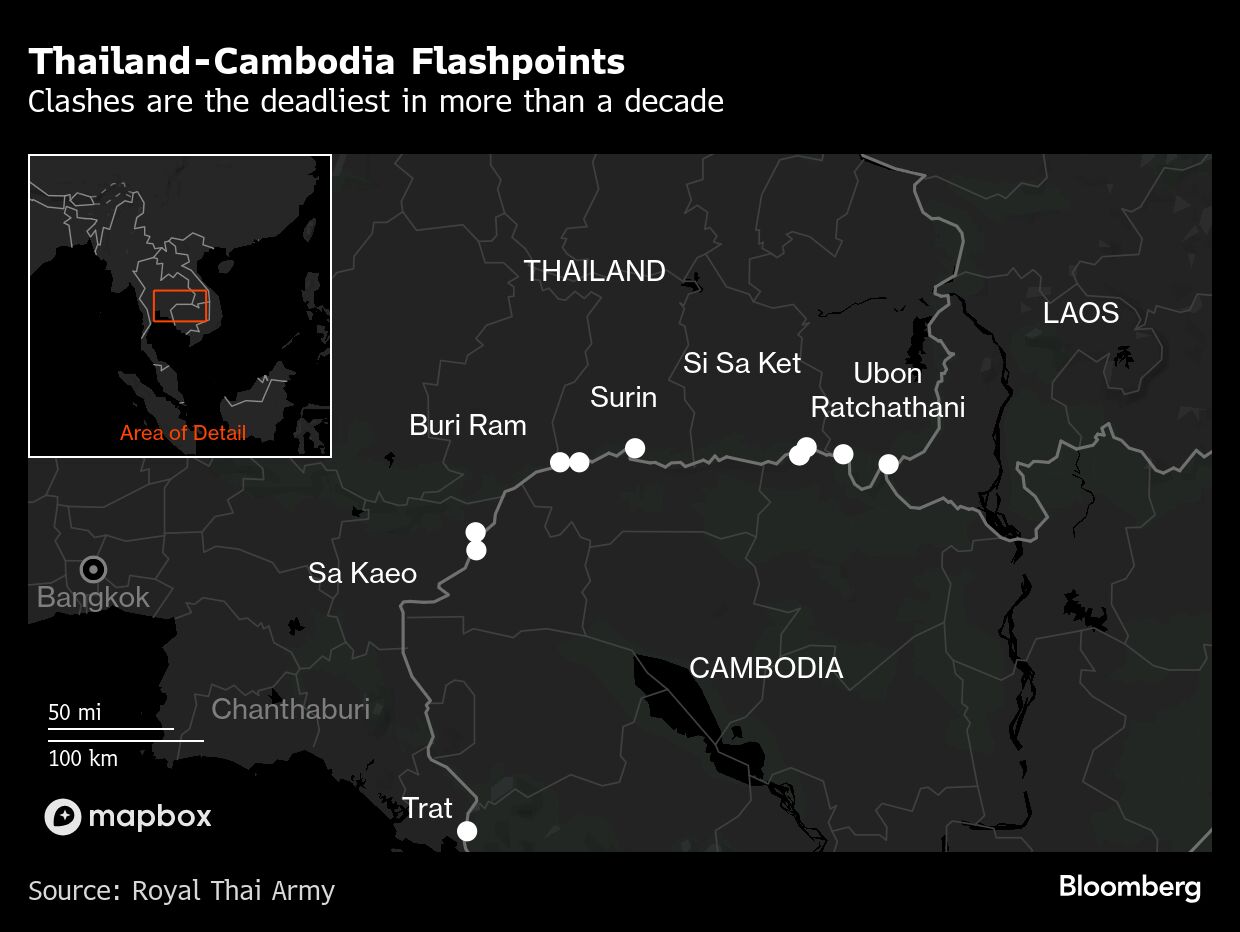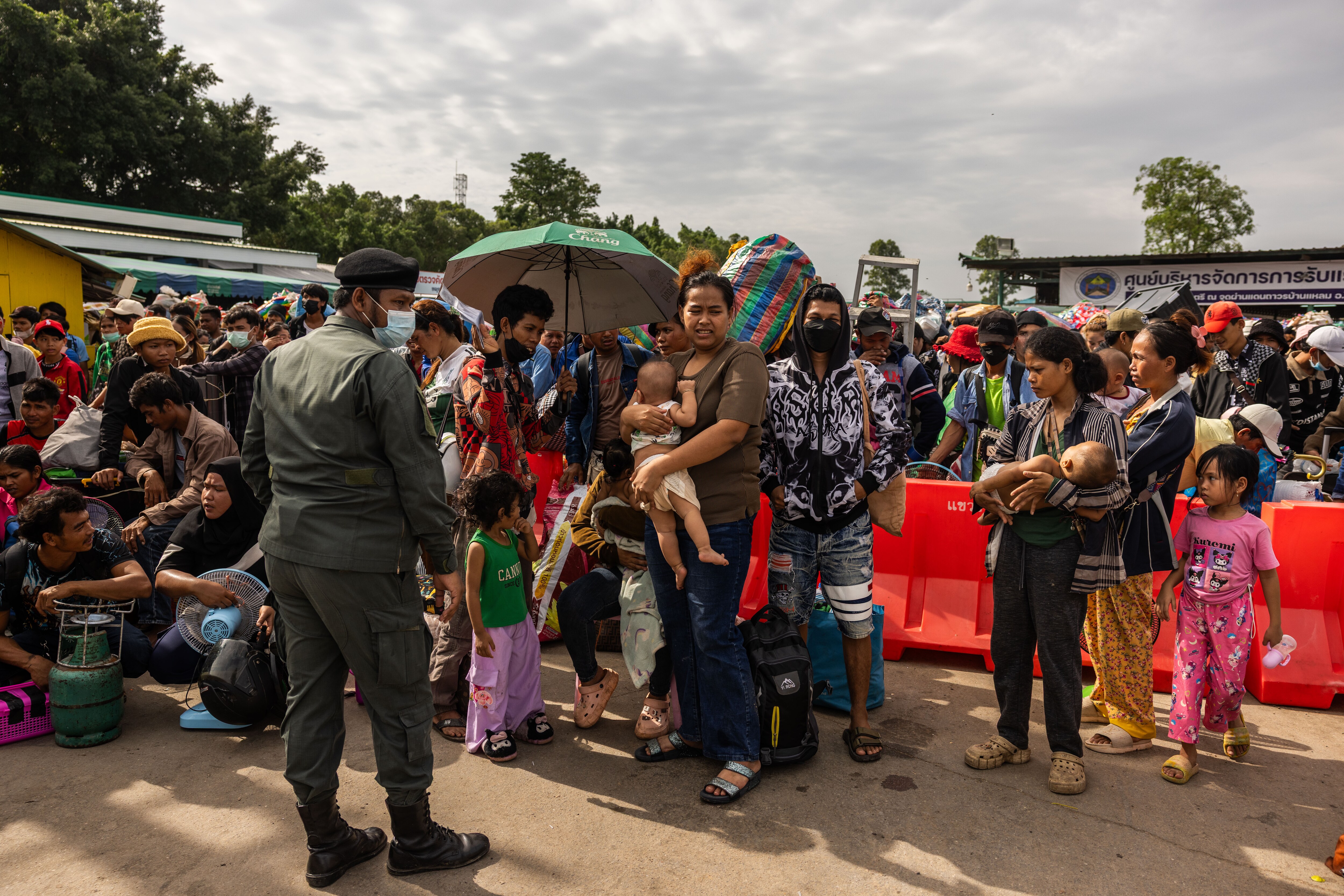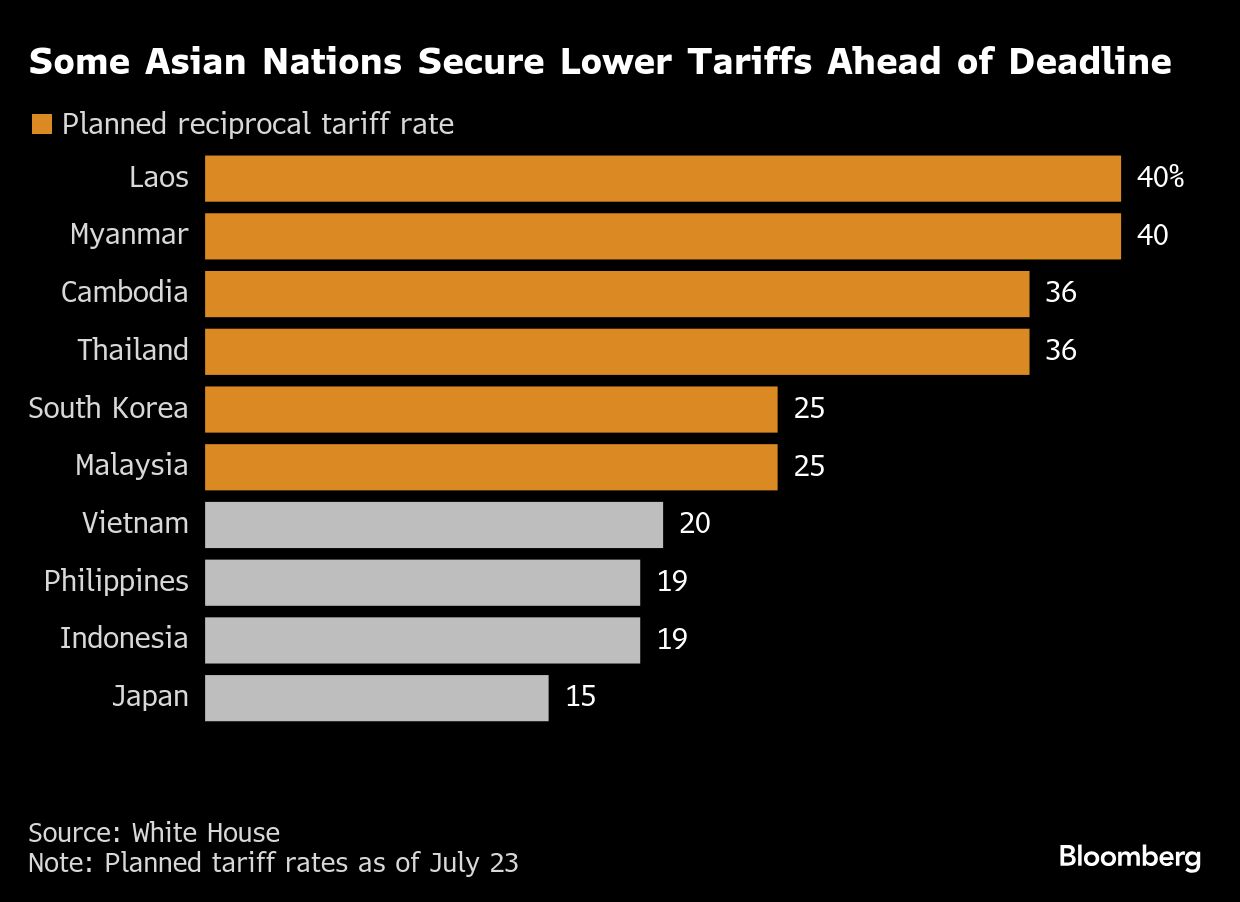
Thai and Cambodian leaders agreed to an unconditional ceasefire to end the deadliest border conflict in more than a decade, after a push by the US and regional powers for a diplomatic resolution.
The ceasefire agreement was reached Monday at a meeting between Thailand's Acting Prime Minister Phumtham Wechayachai and Cambodian Prime Minister Hun Manet in Malaysia, hosted by Prime Minister Anwar Ibrahim. Anwar facilitated the dialogue in his role as the chair of the Association of Southeast Asian Nations, with Washington and Beijing dispatching envoys.
An “immediate and unconditional” ceasefire will be effective from midnight into Tuesday local time, and regional military commanders would meet at 7 a.m., Anwar said after the talks.
“Both Cambodia and Thailand reached a common understanding,” Anwar said. “This is a vital first step toward a de-escalation and the restoration of peace and security.”
In a joint statement issued after the talks, the three nations said their foreign ministers and defense ministers “have been instructed to develop a detailed mechanism for the implementation, verification, and reporting of the ceasefire. This mechanism will serve as a foundation for sustained peace and accountability.”
The talks marked the first formal dialogue since fresh clashes erupted on July 24, with at least 36 people killed and more than 150,000 civilians displaced on both sides of their 800-kilometer (500-mile) border. Tensions escalated rapidly over the weekend and into Monday as heavy artillery fire and aerial strikes were reported, and both sides accused each other of targeting civilian areas.
US President Donald Trump had said before the discussions that the Thai and Cambodian leaders had agreed to “quickly work out a ceasefire.” After separate calls with Phumtham and Hun Manet on Saturday, Trump had threatened that Washington would not reach trade deals with either as long as the fighting continued.
Both Phumtham and Hun Manet thanked Anwar and Trump, as well as China, for helping reach the ceasefire.
Prior to the talks, Thailand had insisted that any ceasefire must include troop withdrawals, an end to lethal force and an agreement to resolve conflict through bilateral mechanisms. Cambodia, by contrast, maintained its support for an unconditional end to hostilities.

The current conflict traces its roots to long-standing disputes stemming from colonial-era maps and treaties that defined the two countries' boundaries. Relations had remained relatively stable since a 2011 clash that left dozens dead, but renewed tensions have triggered fears of escalated fighting.
Trump threatened to block trade deals with both countries unless the violence stopped. “We're not going to make a trade deal unless you settle the war,” Trump said Sunday, adding that both leaders expressed willingness to negotiate after speaking with him directly.

Secretary of State Marco Rubio said earlier that US officials are on the ground in Malaysia “to assist these peace efforts.” A representative of China, the top trading partner for both Southeast Asian nations and a major backer of Phnom Penh, also participated in the talks Monday.
With Trump's Aug. 1 tariff deadline looming, trade-reliant Thailand wants to avoid antagonizing the US president, especially as its officials have been holding talks to lower the steep 36% planned levy on its exports. Trump has claimed credit for helping halt border clashes earlier this year between India and Pakistan by leveraging trade measures. It's an assertion India has consistently denied but Pakistan has embraced.
Thailand's trade talks with the US have included offering expanded access for American goods to narrow a $46 billion trade surplus. Neighboring Indonesia, the Philippines, and Vietnam have already secured trade deals with the US in recent weeks.

“President Trump's pressure tactic seems to be working as both the Thai and Cambodian governments are struggling economically,” said Tita Sanglee, associate fellow at the ISEAS-Yusof Ishak Institute in Singapore. “Failure to lower Thailand's tariff rate will be politically costly.”
But yielding to a ceasefire agreement when the Cambodian threat to take the territorial disputes to the International Court of Justice is still alive, won't likely be accepted by the Thai public or the military, she said.
Cambodia has said it wants the court to help settle the disputed status of four border areas, after a skirmish broke out in May. Thailand doesn't recognize the court's jurisdiction.
Essential Business Intelligence, Continuous LIVE TV, Sharp Market Insights, Practical Personal Finance Advice and Latest Stories — On NDTV Profit.























